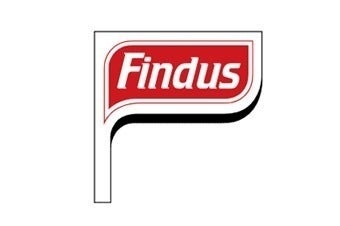
Since Nomad Holdings announced it had acquired European frozen food firm Iglo Group, the market has been waiting for the investment firm's next deal to help its ambition of building a portfolio of "best-in-class" FMCG brands. Nomad confirmed yesterday (4 June) it is in "exclusive" negotiations over the acquisition of assets of Findus Group. The acquisition would strengthen Iglo's hand in the European frozen food sector but, in order to seal the deal, Nomad could have to pay the piper, Katy Askew suggests.
When Nomad announced its acquisition of Iglo Group in April, the company said it "seeks to build a portfolio of best-in-class companies and brands". This, Nomad continued, will be achieved through Iglo's organic growth as well as M&A. "Nomad will pursue strategic and complementary acquisitions intended to enhance its consumer offering and deepen its market leadership," Nomad explained.

Discover B2B Marketing That Performs
Combine business intelligence and editorial excellence to reach engaged professionals across 36 leading media platforms.
As M&A specialists Oghma Partners noted in their review of M&A activity at the start of 2015, the GBP1.9bn (US$2.9bn) sale of Iglo left the frozen food unit positioned as a consolidator in the European frozen food space. "There are indications that Nomad is looking to find bolt-on acquisitions for Iglo. With 90% of the frozen food market to go for in Europe, the next few years could see Iglo acting as a leading consolidator in the sector," Oghma said.
Certainly, there are a number of post-Iglo acquisition targets that could pique Nomad's interest. Glenboden M&A expert Stephan Kirk argued that there are "plenty of candidates" for Nomad to pursue in our recent M&A Watch column. Potential targets could include Kerry Group's frozen ready meals business in the UK or Hortex in Poland. The "big one" for Iglo, however, is Findus Group, Kirk argued in April.
Indeed, Nomad confirmed yesterday (4 June) that it has entered "exclusive" talks with Findus owner Lion Capital over the purchase of the group's continental European assets and the Findus brand.
"Nomad confirms that it is in exclusive early stage discussions with Findus to acquire its continental Europe business and the Findus brand," Nomad said in a regulatory filing.

US Tariffs are shifting - will you react or anticipate?
Don’t let policy changes catch you off guard. Stay proactive with real-time data and expert analysis.
By GlobalDataA spokesperson for the investment vehicle declined to comment beyond the official statement.
For its part, Findus revealed today due diligence is "currently taking place". The company detailed the scope of discussions, which include Findus Nordic (including Sweden, Norway, Finland and Denmark) and Findus southern Europe (including France, Spain and Belgium). The talks do not, however, include Young’s Seafood Ltd, Findus Group’s fish and seafood company in the UK.
Expanding Iglo's geographic reach is likely to be a key priority for Nomad. Findus' strong presence in southern European and Nordic countries would complement Iglo's own geographic footprint and augment its operations in markets where the business does not currently have a strong market share.
Building scale in the frozen food sector is also likely to be key to Nomad's business model. Frozen food is typically a strongly cash generative business but one where margin pressure is intense. For this reason, Euromonitor analyst Pinar Hosafci says, the category is well-suited to the cost-cutting nature of private equity investors.
"While frozen food is regarded as a cash generator, it is also characterised by low margins. Due to storage concerns, frozen food is primarily sold in big chained retailers and discounters which typically own their own private label, exerting significant pressure on the margins of branded products. The high cost, low margin nature of the category lends itself well to private equity, where aggressive cost cutting measures can rapidly improve profitability," Hosafci notes.
The acquisition of Findus would extend Iglo's leading share of European frozen sales. Euromonitor data suggests Iglo had a 10.3% market share in 2014, while Findus was Europe's third-largest frozen food maker behind Oetker Groupe with a 4.4% share of sales.
A combined Iglo-Findus could leverage this scale to reduce costs and drive synergies, advancing the firm's competitive position.
While the strategic logic behind a tie-up between Iglo and Findus is strong, both Findus and Nomad were quick to stress that a deal is far from secured. In the fragmented European frozen food sector, it seems unlikely that competition issues will block a deal altogether. So, it is likely to come down to a question of price.
According to one industry source, Nomad could end up paying quite a premium if it is to ink a deal. "With a strong IPO market at the moment and improved quoted food ratings they may have to pay above 9 times EBITDA to get it."





